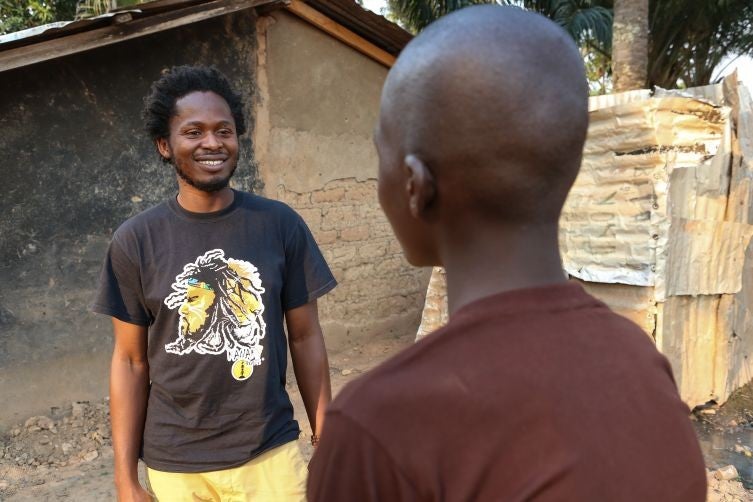‘Killing became as easy as drinking water. I will never be able to forget’
Unicef Ambassador and former child soldier Ishmael Beah says although the memories still haunt him, another future is possible for the children of war


Please donate to our appeal for child soldiers here.
As we drove to a base of one of the many rebel groups in the Central African Republic, the terrain triggered memories of my own war years. The villages with burnt-out ruins of houses and the hesitancy on the faces of the people brought vivid flashbacks of my former life as a child soldier in the bush, during the war in my own country, Sierra Leone, in the 1990s.
I am often asked if I will ever be able completely to forget the brutalities and horrors of the war that came into my life when I was a little boy. The question comes from a desire to understand the possibility of cleansing a child rescued from combat of the memories of war – sufficiently, at any rate, to bring him or her into line with society’s idea of what normality should be.
Much as I would like that, I know it is impossible and that I will never be able to forget the war. But I have learnt to live with it, and it has shaped me, I think, for the better. It gives me hope that the children’s organisation, Unicef, can bring some similar kind of renewal to the children we saw rescued from armed rebels when I recently visited the village of Aigbando in the Central African Republic, where Unicef was attempting to negotiate the release of several child soldiers.
I was travelling with Evgeny Lebedev, the chairman of The Independent, to gather material for this newspaper’s Christmas Appeal, which is raising money for Unicef. Unicef runs transit centres where children who have been released are given psychological help, put back into school and given vocational training. It reunites them with their families or resettles them with foster carers. To do the work Unicef relies entirely on voluntary donations.
As I looked around, rebel soldiers were everywhere – by the dilapidated school, the water well, at the entrance to the village – their guns pointed into the bushes. They stood under the mango tree, where a crowd had been gathered to meet us – but the guards pointed their guns at the people.
Children in a rural African village usually smile at strangers, or at least have a joyful disposition. In this village, where you would encounter the soldiers at every breath of your life, the distrust and intimidation were clear in villagers’ eyes.
I lived at such a base once as a young boy. My mother, father and two brothers had been killed in the war and I watched my homeland change from a place of simplicity and happiness to an unrecognisable hell where violence and horror loomed at every corner. The paths I used to walk on as a boy were littered with dead bodies and the river was filled with blood. The innocence of childhood was destroyed by these brutal men, who forced children to kill their own families as a method of indoctrinating them into the violence. War became my life. I learnt how to function in it very well, to the point that it became normal. Killing became as easy as drinking water. I truly believed that I was capable only of violence and nothing more.
Fortunately, I was removed from that madness by Unicef. Through a long and difficult psychosocial reintegration processes, I began dreaming of other possibilities for my life. Today, as a Unicef Ambassador for children affected by war and conflict, those memories remain to haunt me still.
But I have learnt, through Unicef, that another future is possible. Its staff are working tirelessly, day after day, to make that a reality for other children. Please make a donation to help that work continue.
Ishmael Beah is author of ‘A Long Way Gone: Memoirs of a Boy Soldier’

Join our commenting forum
Join thought-provoking conversations, follow other Independent readers and see their replies